Related Research Articles

Manu Chao is a French-Spanish singer. He sings in French, Spanish, English, Italian, Arabic, Catalan, Galician, Portuguese, Greek and occasionally in other languages. Chao began his musical career in Paris, busking and playing with groups such as Hot Pants and Los Carayos, which combined a variety of languages and musical styles. With friends and his brother Antoine Chao, he founded the band Mano Negra in 1987, achieving considerable success, particularly in Europe. He became a solo artist after its breakup in 1995, and since then tours regularly with his live band, Radio Bemba.
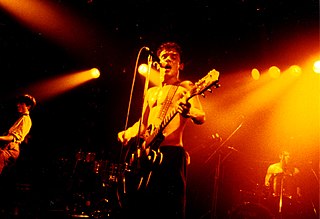
Mano Negra was a French music group active from 1987 to 1994 and fronted by Manu Chao. The group was founded in Paris by Chao, his brother Antoine and their cousin Santiago, all born of Spanish parents with partly Cuban roots. Their songs were mostly in Spanish, English and French, often switching from one language to the other in the same song or in the middle of a sentence or title. They also had a hit song in Arabic. They are considered pioneers of world fusion.

Los Carayos was a French band which released four albums between 1986 and 1994. They were active mostly in Paris in the mid-1980s, but side interests of the musicians, notably of Manu Chao, did not allow the band to take off.

Nouvelle Vague is a French cover band led by musicians Olivier Libaux and Marc Collin. Their name means "new wave" in French, and refers simultaneously to the French New Wave cinema movement of the 1960s, to the new wave music movement of the 1970s and 1980s, which provides many of the songs that the band covers, and to bossa nova, a musical style that the band frequently uses in its arrangements.

"Mr. Bobby" is the last single from Manu Chao's second album, Próxima Estación: Esperanza. Originally, the song was released in a stripped-down form without any wind instruments on the "Bongo Bong" single in 1998. The song, which is a tribute to reggae legend Bob Marley, had success in European countries such as Spain, Italy and Switzerland. During live performances, Manu Chao's band performs the "Politik Kills" version as it is more reggae-influenced than the album version.
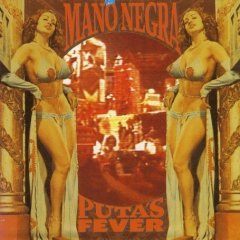
Puta's Fever is the second studio album by Mano Negra, released in 1989. The French edition of Rolling Stone magazine named it the 8th greatest French rock album.

Amerika Perdida is a compilation album by Mano Negra, released on 28 October 1991.

In the Hell of Patchinko is a live album by Mano Negra; it was recorded on 2 November 1991 in Club Citta, Kawasaki, Japan with mobile studio "Sound Creaters" and released on 9 November 1992.

Best of Mano Negra is a compilation album by Mano Negra, released in 1998. It included their greatest hits from 1988 to 1994.

Mano Negra Illegal is a tribute album to the French world/punk band Mano Negra, released in 2001 on the Big Mama label.

East Infection is currently the only EP by Gogol Bordello released in 2005 by Rubric Records. Released prior to the album Gypsy Punks, it consists of leftover tracks from that album's sessions.
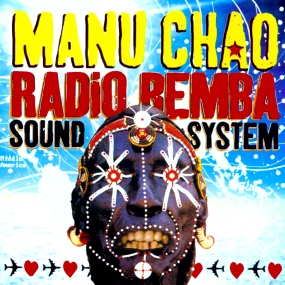
Radio Bemba Sound System is a live album by Manu Chao that was released in 2002. It is the accompanying CD to the performer's live DVD Babylonia en Guagua, filmed over two nights in 2001 during the tour for Proxima Estacion: Esperanza. Many of the songs found on Radio Bemba Sound System, such as "Machine Gun", "Peligro","Mala Vida","King Kong Five" and "The Monkey", are songs originally recorded by Manu Chao's previous band, Mano Negra. However the arrangements performed with Radio Bemba Sound System are more reggae-, ska-, and rock-oriented. The album is sequenced and edited in such a way that there is very little audience noise and cheering between the tracks, thus giving the impression of an all-night happy party - which calms down in the penultimate track only to explode again in the last one ("Promiscuity"); the cheering at the end of "Promiscuity" is cut short by a very early fade.

Les Wampas are a French punk rock/psychobilly band, who refer more exactly to their music as "Yé-yé-punk". The band was formed in Paris in 1983.
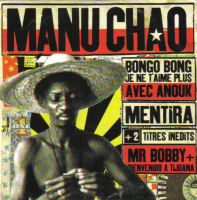
"Bongo Bong" is the first solo single by Manu Chao, from his first album: Clandestino. It is a remake of "King of Bongo", song from Manu Chao's previous band Mano Negra. The title and lyrics are taken from the 1939 jazz song "King of Bongo Bong" by Black American trumpeter Roy Eldridge, which was composed by Jackson and Eldridge. It also uses the background music from Black Uhuru's song "Bull ina di Pen" from their Anthem album. The song is part of a medley with "Je ne t'aime plus" on its album. Moreover, the music has been reused for other songs such as "Mr. Bobby", which was first released on this single before being re-recorded for his second album: Próxima Estación: Esperanza and "Homens", from the same album by Chao.

La Radiolina is the fourth studio album by Manu Chao. It was released on 4 September 2007. Italy saw an advance release of the album on 30 August.

Karamelo Santo is a Latin rock band from Mendoza, Argentina. Formed in 1992 for Goy Karamelo, they released their first album, La Kulebra in 1995. Since then, they have released nine more albums. The single "Que No Digan Nunca" is probably their best-known song. It was used on the soundtrack for the movie Caño Dorado.

Familija was a Serbian rock supergroup from Belgrade, consisting of Vampiri, Košava and U Škripcu members. The band's musical style was a combination of ska, pop, ethnic and rock music.
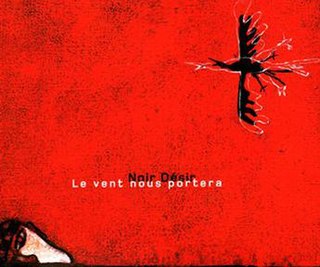
"Le vent nous portera" is a song by French band Noir Désir from their 2001 album des Visages des Figures. It was released as the first single from the album and reached number one for four weeks in a row in the Italian Singles Charts, as well as number three in the French charts and number seven in the Belgian Record Charts. French-born Spanish artist Manu Chao collaborated on the song and played guitar.

Liset Alea is a Cuban-born singer, songwriter and multi-instrumentalist who lives in Paris, best known as a solo artist and lead singer in Nouvelle Vague.
Gambeat is the stage name of Jean Michel Dercourt, a French bass guitarist and DJ, best known for his musical collaboration with Manu Chao. As a member of the Parisian group French Lovers, Gambeat travelled with Manu Chao and his band Mano Negra during their famous rail tour through civil war-racked Colombia in the early 1990s. The tour was later commemorated in Ramon Chao's book The Train of Ice and Fire.
References
- 1 2 Gebesmair, Andreas (2002). "Hybrids in the Global Economy of Music". In Steingress, Gerhard (ed.). Songs of the Minotaur: Hybridity and Popular Music in the Era of Globalization . Münster: LIT Verlag. p. 15. ISBN 3825863638. OCLC 51169913 . Retrieved 9 November 2013.
- ↑ Data, Juan (13 December 2010). "Video: Nouvelle Vague covers Manu Chao at airport". Remezcla. Mosaico Media. Retrieved 9 November 2013.
- ↑ Nickson, Chris. "Patchanka - Mano Negra". AllMusic . Retrieved 9 November 2013.
- ↑ Lebrun, Barbara (2009). Protest Music in France: Production, Identity and Audiences. Farnham, Surrey: Ashgate. p. 31. ISBN 978-0754694649. OCLC 432995828 . Retrieved 9 November 2013.